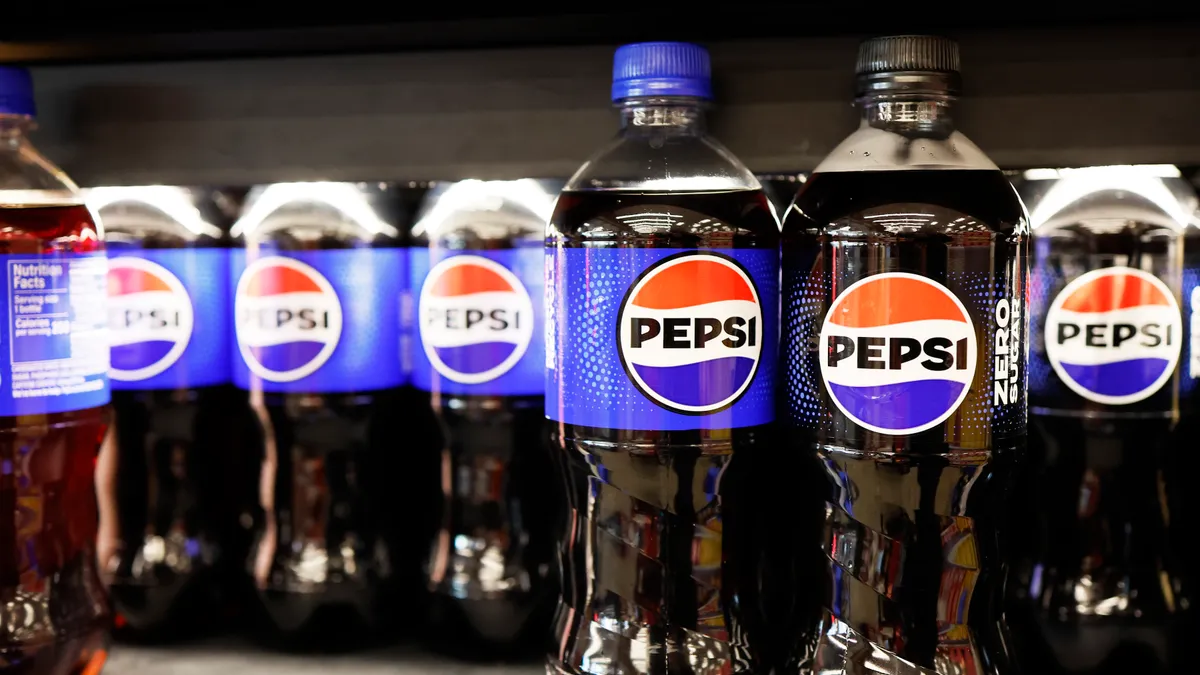Dive Brief:
- PepsiCo was sued by the Federal Trade Commission for providing a large, big box retailer “with unfair pricing advantages,” a practice that forced consumers at other retailers to pay more for its soft drinks. The agency did not name the retailer.
- The FTC suit filed Friday alleges PepsiCo disadvantaged competing retailers — ranging from large grocery chains to independent, local convenience stores — by giving the big box retailer in question key benefits and advantages, such as promotional payments. This resulted in higher prices for U.S. consumers, the FTC said.
- PepsiCo said the company’s practices are normal in the industry and it doesn’t favor certain customers with discounts or promotional support that it does not offer to others. “PepsiCo strongly disputes the FTC’s allegations, and the partisan manner in which the suit was filed. We will vigorously present our case in court,” the soda giant said in a statement to Food Dive.
Dive Insight:
PepsiCo wasted little time defending itself against the FTC’s allegations, noting the agency was wrong on both the facts and the law.
The beverage giant noted that the lawsuit marked an “unprecedented expansion of the” Robinson-Patman Act and “reflects the FTC’s fundamental misunderstanding of the omnichannel retail marketplace and the important role that consumer product suppliers play in providing lower prices and value to consumers.”
The Robinson-Patman Act was passed in 1936 to require a seller to treat all competing customers equally regardless of their size.
The five-member FTC voted in favor of the lawsuit against PepsiCo by a 3-2 vote. Both Republican commissioners made the dissenting votes. The lawsuit was filed in U.S. District Court for the Southern District of New York.
“When firms like Pepsi give massive retailers a leg up, it tilts the playing field against small firms and ultimately inflates prices for American consumers,” FTC chair Lina M. Khan said in a statement. “The FTC’s action will help ensure all grocers and other businesses — no matter the size — can get a fair shake and compete on the merits of their skill, efficiency, and talent.”
The FTC said the lawsuit marks its latest enforcement of the Robinson-Patman Act since it sued the largest U.S. distributor of wine and spirits, Southern Glazer’s, in December. The agency claimed that since 2018, the alcohol distributor offered volume discounts and rebates to large national and regional retail chains while withholding access to similar offerings for smaller independent businesses.
Before the lawsuit against Southern Glazer’s, the government hadn’t filed a lawsuit alleging a violation of the Robinson-Patman Act in more than 20 years, according to law firm Vinson & Elkins.












